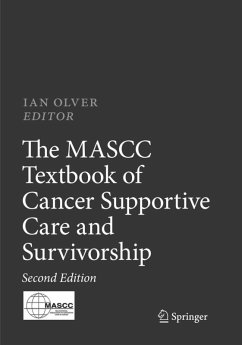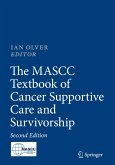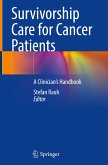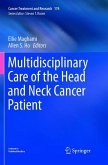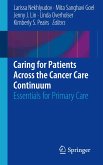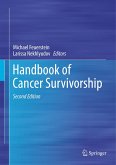This book is intended for medical students, residents, and fellows, as well as medical oncologists, radiation oncologists, surgeons, general practitioners, nurses and allied health workers. Complete with case vignettes, key points, and sidebar summaries to further assist readers using practical tips and tricks, this textbook provides current information on the management and prevention of cancer-related side effects, referring to up-to-date sources that are useful for conducting further research. It also introduces new topics, such as financial toxicity and complementary medicine, as well as covering the new side effects of targeted therapies not covered in the last edition. Additionally, MASCC Textbook of Cancer Supportive Care and Survivorship, 2nd edition assembles international, multidisciplinary experts who focus on a comprehensive range of symptoms and side effects associated with cancer and its treatment.
Over the last fiveyears, much progress has been made in supportive care, helping people cope with the symptoms of cancer and cancer treatment and addressing the physical and psychosocial matters of survivorship prior to, during, and after anticancer treatment. This is central to a patient's wellbeing and the MASCC Textbook of Cancer Supportive Care and Survivorship, 2nd edition, explores not only the diagnosis and treatment, but also the increasingly recognized complex and ongoing symptoms experienced by long term cancer survivors. Significant advances have been made, designing strategies to manage the side effects and symptoms of treatment and to prevent them from occurring, maximizing the person's ability to pursue daily activities.
Reviews of the 1st edition:
"This book reviews the management of cancer symptoms in patients and the side effects and late effects of treatment. The focus of the book is on supportive care and survivorship of cancer patients...The book covers symptomatology, medication and treatment, and system function of patients undergoing chemotherapy or radiation therapy...Photographs and algorithm charts further illustrate key points. This outstanding book is thorough in its explanations and easy to follow." (Arlenda C. Thompson, Doody's Review Service, January, 2011)
Over the last fiveyears, much progress has been made in supportive care, helping people cope with the symptoms of cancer and cancer treatment and addressing the physical and psychosocial matters of survivorship prior to, during, and after anticancer treatment. This is central to a patient's wellbeing and the MASCC Textbook of Cancer Supportive Care and Survivorship, 2nd edition, explores not only the diagnosis and treatment, but also the increasingly recognized complex and ongoing symptoms experienced by long term cancer survivors. Significant advances have been made, designing strategies to manage the side effects and symptoms of treatment and to prevent them from occurring, maximizing the person's ability to pursue daily activities.
Reviews of the 1st edition:
"This book reviews the management of cancer symptoms in patients and the side effects and late effects of treatment. The focus of the book is on supportive care and survivorship of cancer patients...The book covers symptomatology, medication and treatment, and system function of patients undergoing chemotherapy or radiation therapy...Photographs and algorithm charts further illustrate key points. This outstanding book is thorough in its explanations and easy to follow." (Arlenda C. Thompson, Doody's Review Service, January, 2011)

